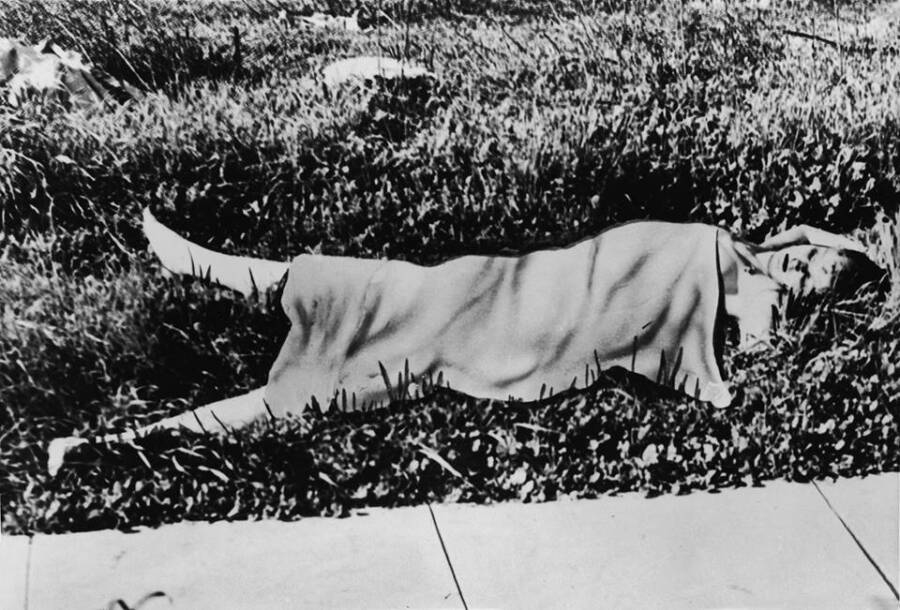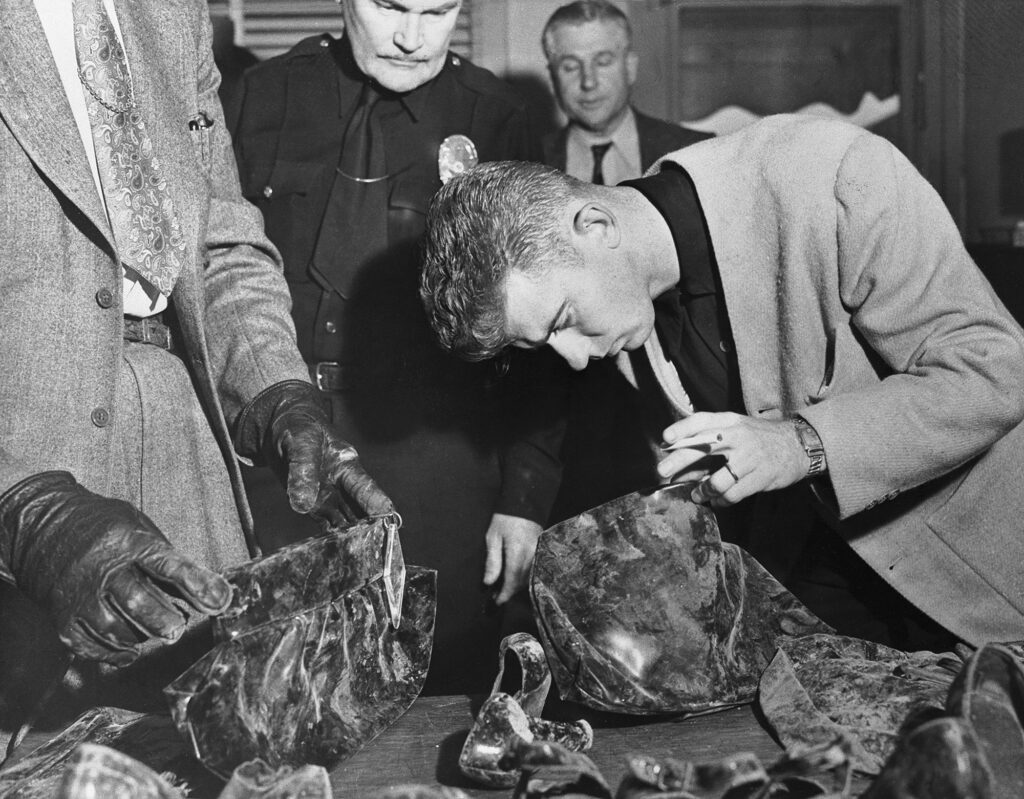The Black Dahlia, a name that has become synonymous with mystery and intrigue, refers to the tragic and brutal murder of Elizabeth Short in 1947. This unsolved case has captured the imagination of the public and historians alike, turning the young woman's life and death into a haunting narrative of glamour and horror. The gruesome nature of her murder, coupled with the media frenzy surrounding it, has led to the creation of countless theories, books, and even films, all striving to piece together the puzzle of the Black Dahlia dead. As we delve deeper into the story, we uncover not only the details of Elizabeth’s life but also the societal context that contributed to her tragic fate. From her dreams of stardom to the chilling aftermath of her death, the Black Dahlia's story continues to resonate in popular culture today.
What makes the Black Dahlia case particularly fascinating is the myriad of suspects and conspiracy theories that have emerged over the decades. The investigation was marked by a lack of physical evidence and an overwhelming amount of public interest, leading to numerous false leads and misdirection. This has left many questions unanswered, sparking discussions about the police's handling of the case and the impact of media sensationalism on public perception. As we explore the life and death of Elizabeth Short, we will also examine the cultural and historical implications of this enduring mystery.
In this article, we will not only retrace the steps of Elizabeth Short but also analyze the events leading to her tragic demise. Who was the Black Dahlia, and what circumstances led to her becoming a figure of morbid fascination? By answering these questions, we hope to shed light on the life of Elizabeth Short and the legacy of the Black Dahlia dead that continues to haunt us to this day.
Read also:The Intriguing Life And Legacy Of James Polk Shaping A Nation
Who Was Elizabeth Short?
Elizabeth Short, known posthumously as the Black Dahlia, was born on July 29, 1924, in Hyde Park, Massachusetts. She was the third of five daughters and grew up in a tumultuous household. After her parents divorced when she was young, Elizabeth moved with her mother to Los Angeles in 1943, where she aspired to become an actress. Short was known for her striking looks, characterized by her dark hair and pale complexion, which earned her the nickname "Black Dahlia."
What Were Elizabeth Short’s Dreams and Aspirations?
Elizabeth Short had dreams of being a Hollywood star, and her ambition was evident as she pursued various acting roles in Los Angeles. Despite her beauty and charisma, she struggled to find substantial work in the film industry. Instead, she often found herself in relationships with wealthy men and was known to frequent cafes and clubs where aspiring actors and actresses gathered. Elizabeth's life in Los Angeles was marked by both fleeting friendships and romantic entanglements, as she sought to establish herself in the competitive world of show business.
What Can We Learn from Elizabeth Short’s Early Life?
The early life of Elizabeth Short offers insight into the societal expectations and pressures faced by women in the 1940s. The pursuit of fame and success often came with sacrifices, and Elizabeth's story reflects the darker side of the Hollywood dream. Her desire for recognition and acceptance may have contributed to her vulnerability, ultimately leading to her tragic end. Understanding her background may help us empathize with her circumstances and the challenges she faced in a city filled with ambition and deception.
How Did the Black Dahlia Murder Occur?
On January 15, 1947, Elizabeth Short's lifeless body was discovered in a vacant lot in the Leimert Park neighborhood of Los Angeles. The gruesome nature of her death shocked the community and made headlines across the nation. Her body had been mutilated, and it was evident that she had suffered immensely before her death. The media's sensational coverage of the case led to the coining of the term "Black Dahlia," which further fueled public intrigue and speculation.
What Were the Circumstances Surrounding Her Death?
Short's body was found severed in half, and the investigation revealed that she had been subjected to horrific treatment prior to her murder. The lack of leads and suspects left the police baffled, and the investigation became one of the most infamous unsolved cases in American history. The details of her death, including the manner in which her body was displayed, raised questions about the motives of the killer and whether the crime was personal or random.
What Impact Did the Black Dahlia Murder Have on Society?
The murder of Elizabeth Short not only shocked the nation but also highlighted the issues of violence against women and the dangers of fame. The media frenzy surrounding the case led to a sensationalist portrayal of her life, turning her into a symbol of tragedy. The case has since inspired numerous books, films, and documentaries, further immortalizing the Black Dahlia dead in the annals of crime history.
Read also:Kuala Lumpur The Vibrant Heart Of Malaysia
Who Were the Suspects in the Black Dahlia Case?
Over the years, numerous suspects have emerged in the investigation of the Black Dahlia murder, each with their own theories and motives. Some of the most notable suspects included individuals from Elizabeth's past, as well as local criminals and even members of law enforcement. Each theory adds another layer of complexity to the case, making it difficult to discern the truth amidst the chaos.
What Theories Surround the Identity of the Killer?
Several theories about the identity of the killer have emerged over the years, some more plausible than others. Some believe that Elizabeth was murdered by a deranged individual who sought fame through notoriety, while others argue that her death was the result of a personal vendetta. The lack of solid evidence has led to rampant speculation, with theories ranging from the involvement of a serial killer to connections with organized crime.
What Role Did Media Play in the Black Dahlia Case?
The media played a significant role in shaping public opinion about the Black Dahlia case. Sensational headlines and graphic descriptions of the crime fueled public fascination and led to a series of false leads. The intense coverage also put pressure on law enforcement to solve the case quickly, which may have hindered the investigation. The legacy of media sensationalism continues to be a topic of discussion when analyzing the societal impact of the Black Dahlia murder.
What is the Legacy of the Black Dahlia Dead?
The Black Dahlia remains an emblem of mystery and intrigue in American culture, a reflection of society's fascination with crime and tragedy. Elizabeth Short's life and death have sparked countless discussions about the nature of fame, the vulnerability of women, and the quest for justice. As we continue to explore this enigmatic case, it is vital to remember the person behind the legend—Elizabeth Short was more than just a victim; she was a young woman with dreams and aspirations, cut short by violence.
How Has the Black Dahlia Case Influenced Popular Culture?
The legacy of the Black Dahlia has permeated popular culture, inspiring numerous films, novels, and television shows. The allure of the unsolved case has made it a popular topic in true crime discussions, and Elizabeth Short's story has become a cautionary tale about the darker sides of fame and fortune. The Black Dahlia's narrative serves as a reminder of the real-life consequences of violence and the ongoing quest for justice in a world filled with uncertainties.
What Lessons Can We Take from the Black Dahlia Murder?
The story of the Black Dahlia dead is a tragic reminder of the fragility of life and the complexities of human nature. It teaches us to be vigilant in the face of societal pressures and to advocate for the voiceless. Elizabeth Short's life and untimely death compel us to reflect on the importance of empathy and understanding in a world that often overlooks the struggles of individuals in pursuit of their dreams.
| Personal Details | Bio Data |
|---|---|
| Name | Elizabeth Short |
| Date of Birth | July 29, 1924 |
| Date of Death | January 15, 1947 |
| Place of Birth | Hyde Park, Massachusetts |
| Occupation | Actress |
| Notable Alias | Black Dahlia |


